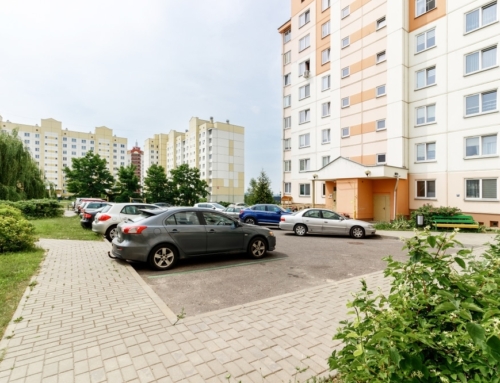Do you have noise issues with rotten neighbors? How to deal with neighbor issues in a homeowner’s association.
Q: I borrowed your book for first-time home buyers from the library a few years ago. I need to read it again and this time I’ll buy it. But in the meantime, I’m hoping you can answer a question for me related to homeowners’ associations and the way they manage properties.
It seems to me that neither the homeowners’ association nor the management company for the building wants to do much when it comes to enforcing the association’s bylaws. I live in a condominium development built in 1971. I purchased a renovated condominium unit and I’m having noise issues.
Some of the other owners/renters in the building are not very considerate. I have been in touch with the association president about the noise issue and suggested that the association call the police on these noise-making neighbors. She thinks it’s ridiculous. They have quite a number of rules relating to dogs and other matters, but nothing about noise. What should I do?
A: It’s a good question. To answer your question, we have to look at various issues that affect your situation. Noise is, and may always be, a problem when people live close together. We’ve received frequent questions from readers regarding the issue of noise and in some cases readers can’t do anything about the situation.
Part of the problem may be the age of the building. Your building was constructed in 1971 and it may have been put up with little sound insulation between units. If your building is prone to noise transmission issues, you may have little recourse other than to sell your unit and move elsewhere. We’ve seen situations where developers rehab old manufacturing buildings with lovely wood beam ceilings but with no insulation whatsoever between units. An occupant in one apartment can easily hear the normal sound conversations of neighbors in adjoining units.
Even in a well-insulated building, you can have an upstairs neighbor working out on a treadmill or ski machine and that noise filters through the ceiling.
To live in a high-rise building, a multiple unit building or other housing arrangement where owners are right next to each other, you must have a higher degree of tolerance to sound than others who live in single-family homes with a greater distance between homes.
The question for you is whether the sound that others make in your complex is unreasonable. While the noise may disturb you, are your neighbors doing something that most people in your development would consider a problem? If your neighbors are watching television or listening to music and the sound level is reasonable, the problem may not be the level of the sound but the sound transmission between the units.
On the other hand, if your neighbors blast their music or make unreasonable noises that just about everyone would consider disturbing, you have a good case to resolve the issue.
If your building has sound transmission issues, you might want to see what you can do to minimize the decibels between your unit and your neighbor’s unit. There are times that electrical, phone and other outlets between units allow sound to travel freely. And some buildings were designed with common ductwork that allows sound to travel great distances.
A contractor can install some sound insulation to minimize the sound transmission impact and that can cost more or less depending on the amount of work you do. For example, you can install cork subflooring underneath carpeting to help muffle transmission and put up another layer of sound-absorbing insulation on adjoining walls and the ceiling.
We give you these solutions first because they tend to be cheaper, less painful and have a greater chance of success than trying to get the police involved or even filing a lawsuit.
Obviously, if your neighbors are exceedingly loud and disturb not only you but also other people who live in the building, the first thing you should do is try to have a chat with them. The best case is that your neighbors are unaware that their activities are disturbing you and they would be willing to change their routine or activities to lower the noise level.
If talking to them does not work, then you will need to figure out what your next steps will be. At this point, we’d assume that their noise is quite loud and obnoxious to just about everyone. So, talk to your neighbors and then talk to the management company for the association or the president of the association.
The president of the association or the manager of the association could talk to the noisy homeowner and try to get them to modify their noisemaking activities. If they refuse, the association can enact rules, similar to dog nuisance rules that would fine the homeowners for their noisemaking activities. Once the homeowners receive fines, they may be persuaded to lower their noisy activities.
The reality of your situation is that noise is subjective, so you need the support of your association board. You mentioned your association has rules for dogs. Some associations have rules that will fine homeowners for dogs that are left barking at home all day long. If barking dogs can get fined, why can’t your association fine homeowners that cause similar disturbances.
Finally, if the noise situation is truly a problem between you and your neighbor – where no one else is affected – you may be left in a situation where you have to work it out with your neighbor, soundproof your apartment, or sell and move.
[amazon_link asins=’1524763438,B0798G3248,B00BCA40S0′ template=’ProductCarousel’ store=’thinkglink-20′ marketplace=’US’ link_id=’cfa1f380-3762-11e8-929d-4d4fc597c9e2′]






Leave A Comment